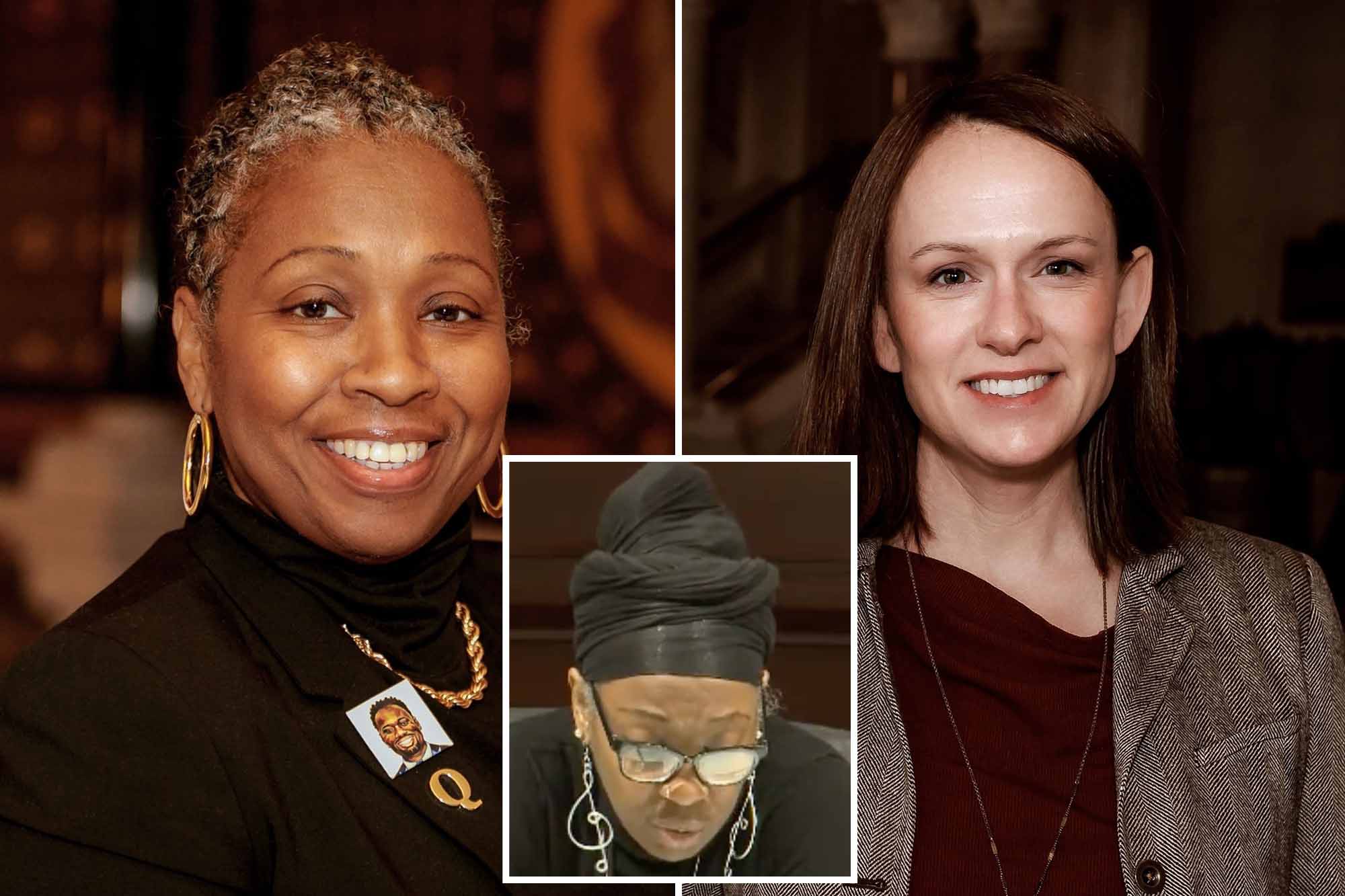
A Connecticut Democrat successfully argued to add the term “expectant mothers” to a state bill referring to “pregnant persons” after a lengthy debate that asked her fellow legislators “what’s wrong” with women who want to be called mothers.
“My children call me mother, Ma, mommy. It depends on the day,” Rep. Robyn Porter, a Democrat from New Haven, told fellow lawmakers in the Democratic-controlled General Assembly Thursday, the Hartford Courant reported.
“I don’t answer to pregnant person or birthing person. That’s not what I answer to,” she said. “A huge part of my identity is wrapped around being a mother and a grandmother. So I find it an affront that someone would try to tell me that what they’re putting on paper for the purpose of policy covers me when I’m telling you that it doesn’t.”
Porter took issue with the wording of House Bill 5454, which dealt with state funding for mental health resources.
The bill would “maximize federal and state resources for mental health services for children 6 years old and younger, their caregivers and pregnant persons,” the original text read.
Following a fiery, 35-minute debate, Porter’s proposed change passed with a vote of 32-16 – with most of the support coming from Republicans and the Democratic Party’s Black and Puerto Rican Caucus, the Courant reported.
“We want to talk about discrimination? Well, I’m here to tell you that Black people in America know that very well,” Porter said. “This is where I really get frustrated in this building, because what we say is dismissed, disregarded, disrespected.”
“I’m always asked to compromise when I come to the table, and I’m expected to do so,” she continued. “We were mothers first. Yes, times are changing, and I’m fine with that because that’s life.”
“But you don’t get to grow, and you don’t get to talk about diversity, equity, and inclusion and exclude me and the other women like me who identify as mothers,” she insisted. “You don’t get to do that.”
Some women “want to be called mothers. What’s wrong with that?” Porter added.
The primary opposition to Porter’s stance came from West Hartford Democratic Rep. Jillian Gilchrest, who co-chairs the human services committee that originally proposed the bill.
“Pregnant person is actually the inclusive term. It is a gender neutral term, and it would encompass expectant mothers, pregnant women,” Gilchrest argued.
“As we talk about DEI, this is the direction we are hoping to move in in this state and ideally across the country,” she claimed. “And so the term pregnant persons is the more inclusive term, and so I would ask my colleagues to oppose the amendment.”
Still, plenty of other legislators voiced their support for Porter’s stance.
“Culturally, as a Puerto Rican person, there is nothing more sacred than a mother. … There is only one mother,” said State Rep. Geraldo Reyes, a Waterbury Democrat. “Just as I opposed the word Latinx, I oppose the word expecting person.”
“It’s nothing against the LGBT community. It’s nothing about them,” added Rep. Minnie Gonzalez, a Hartford Democrat. “Nothing against them. We support them.
“We recognize that they have rights, but where are my rights?” Gonzalez continued. “I have the right to defend my rights.”
Many of the lawmakers seemed exasperated by the lengthy back-and-forth.
After the voting for the amendment, State Sen. Joan Hartley, of Waterbury, was overheard muttering “Jesus, Mary, and Joseph” into a microphone before quickly shoving it aside, the Courant noted.
“I’m just astonished by some of the things that are being said,” said Rep. Anthony Nolan, a Democrat from New London.
“In Black culture, who really are ingrained with that word ‘mother,’ for us to go home and call our mother something other than a mother, we would end up with a slap across the face,” he explained. “We’re not removing anything. We’re just asking to add something that is dear to those that are speaking in regards to it, especially in the Black culture.”
Porter and her supporters argued that the change was a “friendly amendment,“ though the opposition suggested otherwise.
“I’m not here to change hearts and minds. This is just me putting forth an amendment on behalf of people who identify as I do,” Porter noted.
Porter’s office did not immediately respond to The Post’s request for a comment.














